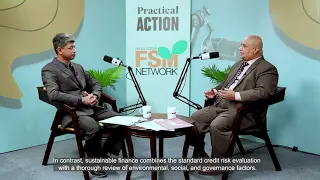Bangladesh has made significant strides in sanitation, but the health and safety of sanitation workers remain a major concern. Many workers, including pit emptiers and waste handlers, labour without adequate protection, training, or access to healthcare, leaving them vulnerable to illness and injury. Tragically, some have lost their lives while carrying out these essential duties. A large number of sanitation workers belong to marginalised communities such as the Horijon and Dalit, and often lack formal employment rights, insurance, or social security. Although the Bangladesh Labour Act 2006 contains provisions for worker safety, enforcement within this sector is limited. This episode sheds light on the challenges these workers face and highlights the work of NGOs and networks like the FSM Network in improving safety and dignity. It explores practical solutions and the responsibilities of government, private sector and civil society in ensuring safer working environments for sanitation workers across Bangladesh. Guest: Md. Tanvir Ahamed Chowdhury - Business Advisor, SNV Host: Samia Anwar Rafa - Technical Officer, WaterAid Bangladesh Sixth episode of the 7-episode discussion series "Faecal Sludge Management for Sustainable Sanitation" presented by Practical Action in Bangladesh in collaboration with Bangladesh FSM Network
31 July, 2025
Episode 5: Future of Sanitation Financing in Bangladesh
As Bangladesh shifts toward a greener and more climate-resilient future, financing for sanitation and waste management is becoming increasingly important. Guided by Bangladesh Bank’s initiatives and global frameworks like the Sustainable Development Goals and the Principles for Responsible Banking, green finance is gaining momentum.


No comment yet.